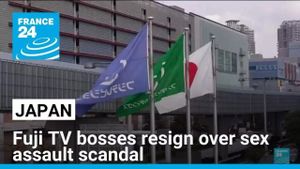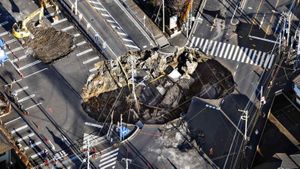The conflict raging in eastern Democratic Republic of Congo (DRC) is not merely about territorial control, but deeply entwined with the exploitation of the region's abundant natural resources, particularly coltan, which is integral for the electronics industry worldwide.
At the heart of this humanitarian crisis is the M23 rebel group, which has recently garnered attention for its aggressive advances, including the capture of Goma, the largest city in eastern DRC. This strategic city has become a hub for relief operations, but the fighting has drastically disrupted humanitarian efforts, leaving hundreds of thousands of civilians displaced.
Reports indicate the M23, which began its rebellion late 2021 led by Congolese Tutsi officers, accuses the Congolese government of failing to uphold previous peace accords. The conflict has intensified as neighboring Rwanda backs the M23, viewing it as necessary to regain influence over the region. While the Congolese government has refused to negotiate, it has escalated the conflict by collaborating with local militias, complicity fueling the fire of instability.
The violence has perpetuated significant humanitarian crises, as local communities suffer from dwindling food supplies and lack of access to basic services such as water and electricity. Jane Doe, spokesperson for the UN, stated, "The humanitarian impact of the latest fighting has been disastrous," emphasizing the urgent need for relief and intervention.
Central to this conflict is the region's rich reserves of coltan, particularly sourced from Rubaya, which has fallen under the control of the M23. Coltan is not just any mineral; it is the source of tantalum, valuable for smartphones and various electronic devices. This dependency on coltan has turned it from simple ore to the lifeblood of both the M23 and the global electronics supply chain.
The informal mining practices used by thousands of local miners expose them to dangerous conditions, often akin to slave labor, with the M23 implementing what has been described as a “state-like administration” over these areas. Miners are forced to abide by M23 regulations, which include exorbitant fees and taxes. A UN report estimates the M23 collects roughly $800,000 monthly from coltan taxation, funding their armed rebellion and operations.
Many of these minerals, particularly coltan, make their way not just through local channels but also mysteriously cross borders. Rwanda, often accused of complicity, has its own coltan mining industry. Analysts suggest uncertified coltan from DRC often gets mixed with Rwandan production, contaminatively blending conflict minerals with legitimate goods, thwarting international regulations aimed at ethical sourcing.
Compounding these issues is the failure of international frameworks to prevent conflict minerals from entering global supply chains. Initiatives like the Innovative Tin Supply Chain Initiative (Itsci) aim to track sourcing but have been criticized for their lack of effectiveness and transparency. Security expert Ken Matthysen highlighted how corruption issues complicate the tracking process, allowing conflict minerals to evade accountability.
"The theory behind Itsci is sound, but the implementation has faltered due to the dispersed nature of mining operations," Matthysen remarked, underscoring the challenges of maintaining oversight over such chaotic environments.
Despite these obstacles, large multinational corporations, including tech giants like Apple, have faced scrutiny. The Congolese government filed criminal complaints against these companies for allegedly sourcing conflict minerals, aiming to bring light to the dark underbelly of international trade exploiting local resources.
While Apple has claimed to halt sourcing of tantalum from the DRC since early 2024, other companies continue to operate under less transparent conditions. This leaves room for complicity as long as the M23 maintains control and continues its lucrative mining operations.
The absence of effective governance and intervention from both regional leaders and international actors highlights systemic failures. The DRC possesses immense potential due to its wealth of resources, yet has spiraled deeply due to both external exploitation and disastrous internal governance.
Experts agree this war should not merely be dismissed as DRC's internal issue. Rather, it symbolizes a more significant moral obligation for the entire African continent. Mike Omuodo, pan-African communications expert, points out, "The war... undermines Africa's collective goals of peace, security, and economic development," arguing for urgent intervention to reclaim sovereignty.
If there is to be hope for the DRC and its people, there needs to be decisive action to end the violence and restore stability. The responsibility lies not only with the Congolese leaders but extends to the regional powers and international stakeholders, who must prioritize peace and ethical sourcing of the continent’s rich resources. Failure to act will worsen the humanitarian crisis and perpetuate the cycles of violence and exploitation, dimming prospects for the DRC and the African continent.



